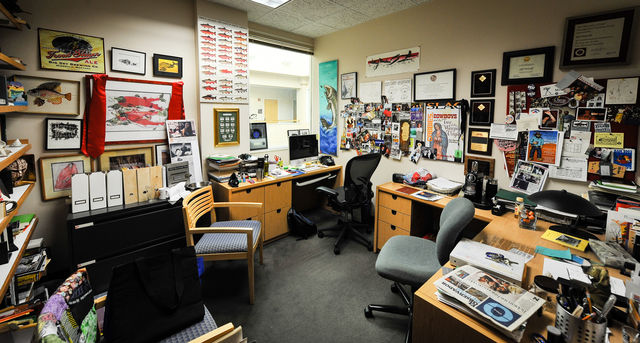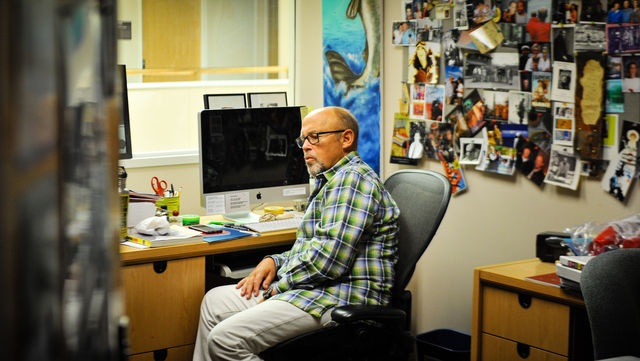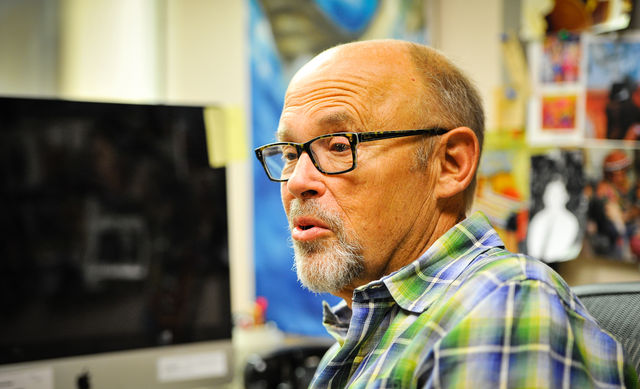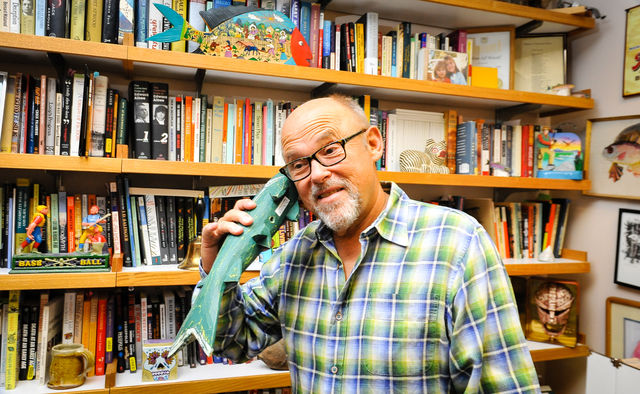University of Utah professor Jeff Metcalf wears many hats: author, playwright, actor, world-traveler, filmmaker and teacher.
Metcalf has penned fiction and essays that have been published locally and nationally. He is arguably best known for his book “Requiem for the Living.” Originally titled “52 by 52,” the book was inspired by Metcalf’s vigorous battle with prostate cancer. Given only a 20 percent chance of living past the next three years, Metcalf challenged himself to write an essay a week for an entire year. Rather than a recounting of a journey through cancer, “Requiem for the Living” instead became a “celebration of life,” Metcalf said.

Metcalf also wrote and eventually went on to star in a one-man play about cancer entitled “A Slight Discomfort” that has played extensively on Utah stages and toured throughout the United States and Europe.
The years of sharing his story both on and off stage began years prior when he made an impulsive decision at City Art, a local writing conference. A popular author even then, Metcalf was invited to read some of his work to the audience and had an “extremely funny” piece that he had been preparing. Yet as he prepared to read to the audience, he instead reached for three pages out of his cancer journal. When considering which of the two to read, Metcal recalled, “There was this voice that said, ‘be safe. This is simple.’ But then the other voice said, ‘be brave.’” Metcalf read from his cancer journal to receive a standing ovation. Mike Dorrell from the Salt Lake Acting Company approached Metcalf about turning his cancer journal into a play.
When asked about his creative process, Jeff was quick to say, “We are part of our own narrative.” Having lived in and travelled to several different countries including Saudi Arabia and Holland, Metcalf agreed that his time abroad has deeply shaped him as a writer. “Living abroad has profoundly impacted my style of writing,” he said. “It allows me to consider language, and how language is used. I am acutely sensitive to people–particularly people who don’t have voices–which kind of led me to creating the Humanities in Focus class.”

Having nearly been a college dropout himself, Metcalf became deeply involved in the teaching community “as a fluke.” Inspired by those he came in touch with through teaching, Metcalf soon became passionate about creating a course that would allow for the stories he heard to be told. “I would hear these wonderful stories…interesting ones, in terms of people’s trials and tribulations. And I thought, ‘This is a population that is not heard. This is a voiceless population.’”
Metcalf’s dream for such a course soon became a reality and is known today as “Life Through the Lens,” a class on filmmaking for documentaries taught within the Honors College. The class includes U students, as well as community members from varying backgrounds and disciplines; family members have taken the course together and had their relationships strengthened as they worked on their projects. Despite being from different walks of life, all greet each other warmly and with enthusiasm for the upcoming projects. Meeting once a week, the students begin class by having dinner together. This gives them time to truly connect with one another, and the class is deeply bonded by the end of the year. “[This class] liberates people and gives them permission to talk about those things that they don’t normally get to talk about,” Metcalf said.
The themes of the documentaries made vary drastically. The films that have reached wide audiences featured the stories of escape from the FLDS church by a young man who crossed the U.S. border illegally but with a heart full of hope, a brave woman who fought to be freed from a life as a gangster and a woman moved by the love she had for her children and a desperation for wrongs to be made right. Her story reached so many that she eventually went on to meet with Michelle Obama and share her experience with the First Lady.

This year the students will be working on stories of suicide within the LGBTQI+ community, sexual assault and sex trafficking, the cultural adjustment that the children of immigrants undergo, the impact of The Burrito Project among the homeless community in Utah and the story of a woman who survived the Trolley Square shooting in 2007 but lost her daughter to the bullets of the gunman.
Rather than having an unchanging syllabus followed with precision, Metcalf’s teaching style instead welcomes the creativity and individuality of his students. “We are training the next generation of teachers,” Metcalf said. Far from being passive participants merely filling the room, students express their ideas and thoughts with boldness and a determination to best bring someone’s story to light through film in classes. Eager to share resources and contribute as much as possible, the 2016-17 class of “Living Through the Lens” is sure to capture the untold stories of Utah residents with raw emotion and passionate talent.
@alexiscortezxx


